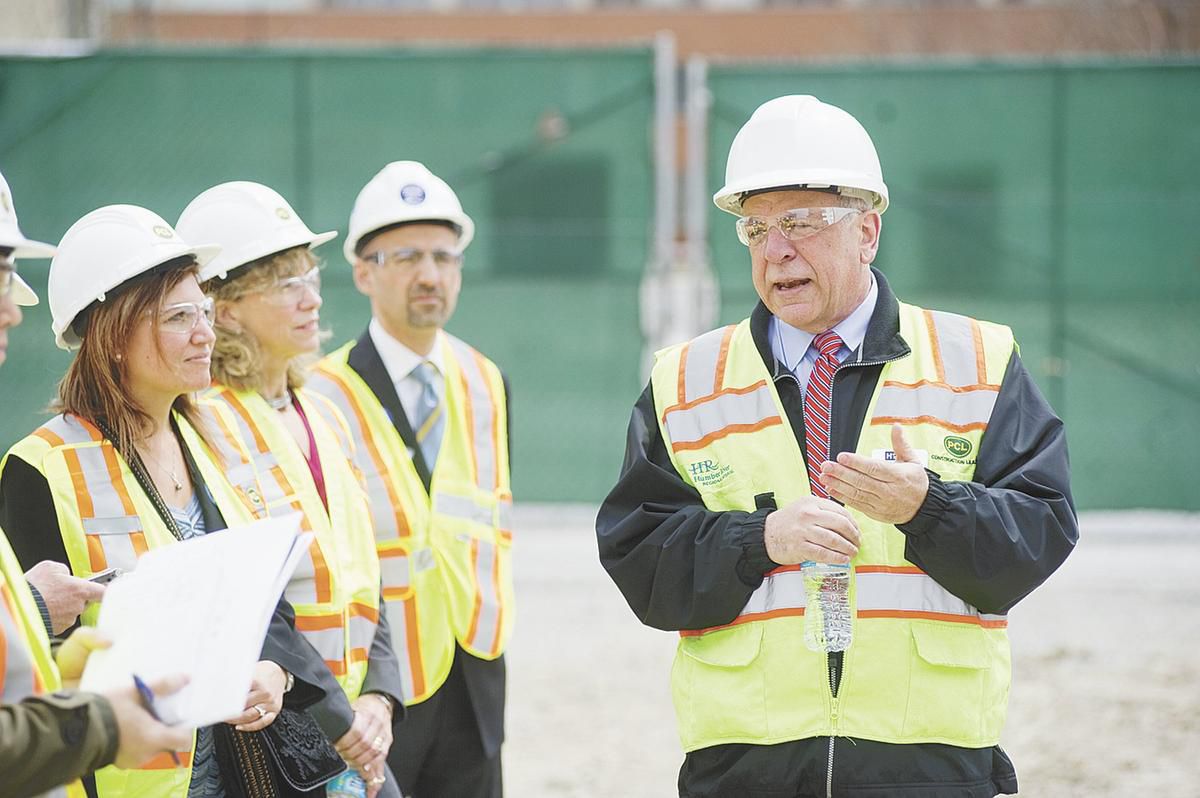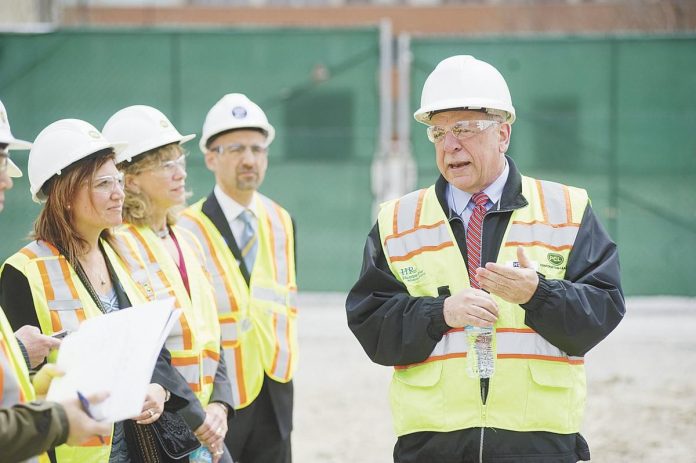[ad_1]
The Progressive Conservatives point man on health care doesn’t buy that the appetite for health services and resources is insatiable.
“There is a concept that demand for health care is infinite. That’s not true. It’s not infinite. It’s just that we are so far behind it looks infinite,” Dr. Rueben Devlin said.

As a member of Premier-designate Doug Ford’s transition team and his top adviser on health policy, it’s Devlin’s job to not only help the system meet current demand, but also to transform it so it is prepared for a doubling of the senior population in two decades.
In an interview given just days before Ford won the election, Devlin, former president of the Ontario PC Party, described his vision for the future of health care in Ontario. He clarified that his opinions are only advice.
Meeting the needs of a growing and aging population — and one with an increasing number of dementia patients — starts with having a long-term vision, Devlin explained.
He said the Progressive Conservative vision places an emphasis on: making more health care available outside of hospitals; improving integration as patients move from hospital to home and throughout the rest of the health system; increasing innovation and making better use of technology; and improving access to patient records.
Told that sounds a lot like the vision of previous governments, Devlin said the Tories would do a much better job of implementing it.
What distinguishes the Progressive Conservatives from other parties, Devlin said, is that they have the “political will to modernize our system by creating real integrated care.”
As well, they have experience in developing “the hospital of tomorrow,” he added.
For 17 years, until the end of 2016, Devlin was president of Humber River Hospital. During that time, he oversaw a massive redevelopment, which transformed the hospital into what he describes as one of the most technologically advanced on the continent.
Devlin said Ford tapped him to be his health care adviser because of his track record at Humber. The former orthopedic surgeon said he focused on making Humber a leader in delivering “patient and family centred care” by having high standards in quality, safety, efficiency and customer service.
“That is what a Doug Ford government would like to make happen for the province,” Devlin said.
Devlin and Ford also share a strong personal connection. When Ford’s younger brother — the late Toronto mayor Rob Ford — became ill, it was to Humber he went. Devlin helped Doug stickhandle the media throughout the ordeal. It was Devlin who revealed to reporters that Rob had a tumour.
Key to long-term planning is ensuring that the many health care sectors have sufficient capacity and long-term stable funding, Devlin said, echoing a request of hospitals, long-term care homes and home-care agencies. Getting the capacity balance right between these different sectors is how scarce health dollars are used wisely, he noted.
Devlin acknowledged that the next government would have to hit the ground running in addressing the problem of “hallway medicine.” Overcrowded hospitals are a well-known symptom of an out-of-balance health system.
Too many elderly patients are stuck in hospitals, even though they no longer require acute care, because there is not enough home care, community care and long-term care.
Devlin said Ford’s election platform — which include more long-term care beds, mental health services and dental services for seniors — will help take pressure off hospitals.
He said he also liked solutions to hallway medicine, proposed by health-care leaders, in a recent Star feature. He repeatedly echoed a line from that story by Dr. Danielle Martin, vice-president of Women’s College Hospital, who said Ontario’s health system is built upon a “20th-century model” and requires “21st-century solutions” to work better.
Devlin said he likes “reactivation centres,” which are a new model of care the province began using last winter. These are facilities into which frail, elderly patients can move when they no longer need hospital care. They get rehab there and some do so well that they no longer need long-term care.
Devlin said supportive housing and earlier interventions for people with mental health and addictions problems can also help prevent trips to the emergency department.
“I hope that maybe I surprised you by how progressive we are with our health care policy,” he said.
TOP STORIES, DELIVERED TO YOUR INBOX.
[ad_2]








